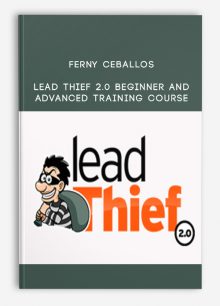PWPS – Lifetime Access Pass
$45.00
Product Include:
File size:
PWPS – Lifetime Access Pass
**More information:
Get PWPS – Lifetime Access Pass at Salaedu.com
Description
Table of ContentsPart 1: Motivation
Daniel Pink on Motivating Top Performance 5
Shawn Achor on Staying Positive in a Stressful Workplace 13
Adam Grant on Why Helping Others Drives Our Success 22
Todd Herman on What Top Performers Do Differently 32
Todd Henry on How to Be Brilliant at a Moment’s Notice 42
Part 2: Productivity Dan Ariely:
A Behavioral Economist’s Guide to Productivity 51
Jay Papasan on The One Thing High Performers Do Differently 60
Rory Vaden on How to Multiply Your Time 71
Paula Rizzo on How to Write the Perfect To-Do List 81
Mike Vardy on How to Stop Time 89Thanh Pham on Powerful Tips for Boosting Your Efficiency 98
Part 3: Habits Charles Duhigg on How to be Smarter, Faster and Better 108
Gretchen Rubin on Changing Your Habits 118
Greg McKeown on Determining What is Essential and Eliminating Everything Else 129
Michael Bungay Stanier on How to Coach Like a Leader 141
Craig Ballantyne: Own the Day and Control Your Life 152
Part 4: Energy Susan Cain: An Introvert’s Guide to Peak Performance 163
Michael Breus on Your Body’s Best Time for Everything 169
Caroline Webb on How to Have a Good Day 178
David Allen on Getting the Right Things Done 189
Ari Whitten on The Energy Blueprint 1982
Part 5: Health Natalie Jill on How to Get Fit in 5 Minutes a Day 209
Susan Peirce Thompson on Eating to Achieve Top Mental Performance 219
Tom Rath on Best Practices for Eating, Moving, and Sleeping 229
Isaac Jones on How to be Superhuman 240O
cean Robbins on How to Eat Smarter 249
Part 6: Success Dan Martell on How to Think Like a Serial Entrepreneur 259
Angela Duckworth on The Power of Grit 270
Ajit Nawalkha on Setting Smarter Goals 278
Darren Hardy on Using Everyday Decisions to Transform Your Life 289
Jon Morrow on How to Overcome Any Setback 300
Part 7: Leadership Marshall Goldsmith on How to Lead Like a CEO 308
Peter Bregman on Improving Your Performance in 18 Minutes a Day 316
Michael Port: An Actor’s Guide to Public Speaking 326
Chester Elton on Secrets of High Performing Teams 340
Lolly Daskal: A Leadership Expert’s Guide to Greatness 350
Part 8: Build Your Brand Dorie Clark on How to Network Like a Thought Leader 356
Alex Mandossian on What Great Networkers Do Differently 367
Danny Iny on How to Teach and Grow Rich 376
Marisa Murgatroyd on How to Find Your Unique Voice 385
Part 9: Grow Your Income Jeff Goins on Secrets of Wealthy Artists 395
T. Harv Eker on Mastering the Inner Game of Wealth 405
Chris Ducker on How to Buy More Time 415
Josh Turner on Building Authority With LinkedIn 426
Suzanne Evans on The Smartest Way to Grow a Business 434
Part 10: Work-Life Balance Christine Carter on How to Be Happier at Work 443
Michael Hyatt on How to Have Your Best Year Ever 453
Michelle Gielan on Inspiring Positivity in Others 462
Mark Timm on How to Empower Your Family to Thrive 473
April and Eric Perry: A Productivity Expert’s Guide to Organizing Your Life 481
Self Help – Self Help online course
More information about Self Help:
Self-help or self-improvement is a self-guided improvementóeconomically, intellectually, or emotionallyóoften with a substantial psychological basis.
Many different self-help group programs exist, each with its own focus, techniques, associated beliefs, proponents and in some cases, leaders.
Concepts and terms originating in self-help culture and Twelve-Step culture, such as recovery, dysfunctional families, and codependency have become firmly integrated in mainstream language.
Self-help often utilizes publicly available information or support groups, on the Internet as well as in person, where people in similar situations join together.
From early examples in self-driven legal practice and home-spun advice, the connotations of the word have spread and often apply particularly to education, business,
psychology and psychotherapy, commonly distributed through the popular genre of self-help books.
According to the APA Dictionary of Psychology, potential benefits of self-help groups that professionals may not be able to provide include friendship,
emotional support, experiential knowledge, identity, meaningful roles, and a sense of belonging.
Be the first to review “PWPS – Lifetime Access Pass” Cancel reply
Related products
Internet Marketing Courses
Internet Marketing Courses
Internet Marketing Courses
Internet Marketing Courses
The 2015 Advanced SEO Certification Course from SearchEngineNews
Internet Marketing Courses
Ferny Ceballos – Lead Thief 2.0 Beginner and Advanced Training Course
Internet Marketing Courses











Reviews
There are no reviews yet.